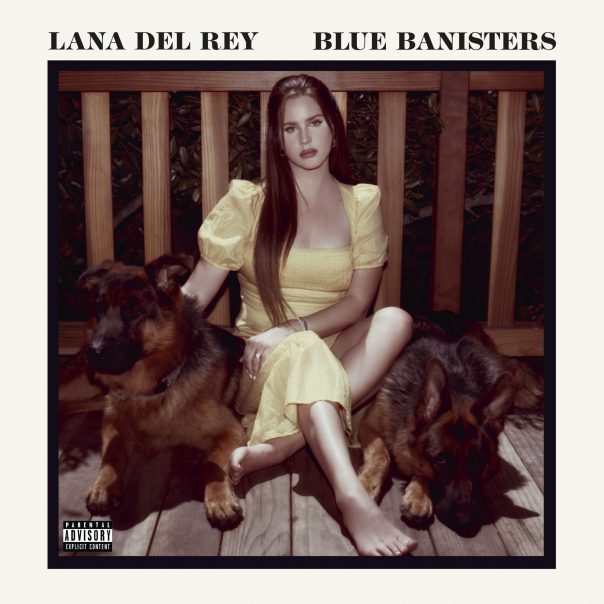ALBUM REVIEW: Lana Del Rey connects her past via ‘Blue Banisters’
Blue Banisters has arrived. After one of the most confusing and ill-planned album releases in recent memory, the eighth studio effort from Lana Del Rey is finally out. Originally titled and announced as Rock Candy Sweet just a day after the release of her previous album, Chemtrails Over the Country Club, in March, the artist teased various release dates, album covers and singles before finally releasing the project without hardly any fanfare.
Blue Banisters
Lana Del Rey
Polydor Records, Oct. 22
8/10
Pulling from a sprawling catalog of music and poetry, Lana Del Rey dug herself deep into her songwriting archives, pulling out several tracks written years ago and fine-tuning the entire collection to focus on her concept of the color blue.
At first, the theme may be vague, as blue is often interpreted as melancholic, though she’s often used it to describe happiness. It’s not necessarily that every song follows the same storyline, but more so that Lana Del Rey tells stories interpreting the color with various visceral meanings. If we’re getting interpretive, the “banisters” could represent the breadth and distance between the creation of the tracks, some written recently, others nearly a decade old.
Despite the project being one of her best so far, it begins with three of its most lackluster tracks. “Text Book,” “Blue Banisters” and “Arcadia”–all released as singles–find Lana Del Rey reminiscing on past lovers and singing of various uniquely American subjects. In these first tracks, she mentions John Deere tractors, a Ford Thunderbird, the Black Lives Matter movement and various iconic areas of L.A. like Brentwood and Arcadia. Maybe it’s just getting tiresome to always hear her romanticize a country with so many deeply systemic issues. Either way, if you get through them, there’s a much better string of songs to follow afterward.
She changes gears for the interlude, “The Trio,” where she not only samples the legendary Ennio Morricone, but goes further with the track, layering in a deep, electronic beat before fading it back out slowly. Musically, it’s the surprising piece on the album and is placed just perfectly to pick up the pace.
The most noteworthy musical piece on Blue Banisters has to be “Dealer,” which features an uncredited appearance from Miles Kane. He opens the song with groaning vocals and a slow guitar part. The two begin harmonizing, then wail and screech over lyrics about financially abusing one another. “I don’t wanna give you nothing/ ‘Cause you never give me nothing back/ Why can’t you be good for something?/ Not one shirt off your back,” they sing together during the first chorus.
If you’re intimately familiar with Lana Del Rey’s intricate and detailed discography, you’ll recall the Ultraviolence era when listening to much of Blue Banisters. “Nectar of the Gods”—where her voice aches over the cruel world and gets wild and “crazy like the color blue”—and “Cherry Blossom”—where she shields a lover from the cruel world—sound like outtakes from the 2014 album. Then check the tracklist for Ultraviolence and notice the opening song titled “Cruel World.” It turns out these tracks, and others like “If You Lie Down With Me,” were indeed composed during writing sessions for Ultraviolence. Though knowing Lana Del Rey, she could have been reworked them several times over.
She continues to connect her previous work on “Violets for Roses,” recalling the name of her poetry book, Violet Bent Backwards over the Grass, while singing, “You made me trade my violets for roses/ You tried to trade in my new truck for Rollses.” It seems to throw directly back to her track “Bartender,” from Norman Fucking Rockwell!, where she sings of buying a truck in the middle of the night.
Despite the nostalgia emitted through a large portion of the album, some of Blue Banisters’ highlights are songs actually written for it. “Black Bathing Suit” features a stellar opening verse with lyrics about “grenadine quarantine” and, “If this is the end, I want a boyfriend.” “Sweet Carolina” concludes the album with heavy-sounding piano and a lover scared of having the “baby blues.” “Just know this is your song and we love you,” Lana Del Rey reassures him soundly, as the piano trills elegantly.
Follow Domenic Strazzabosco at Twitter.com/domenicstrazz and Instagram.com/domenicstrazz.

